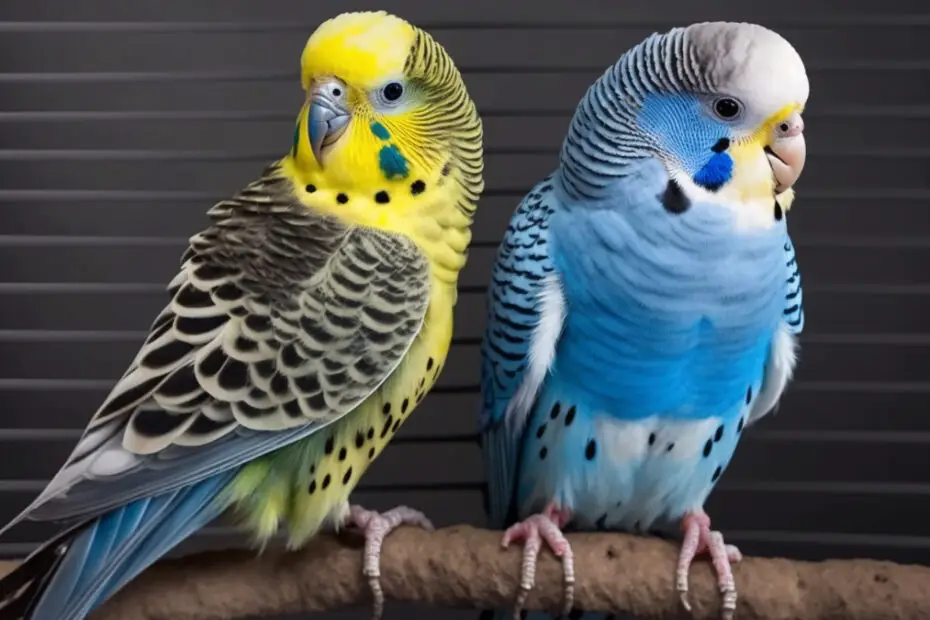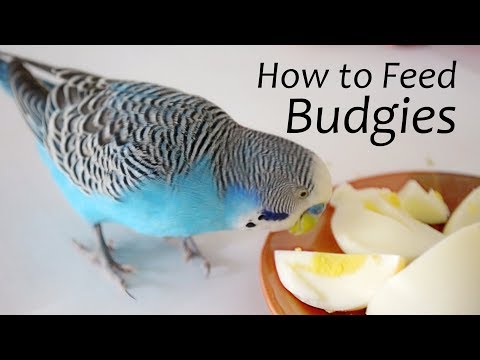Budgies, small and colorful birds, are also known as parakeets. To talk about their food and care, the concern regarding a balanced diet comes first. Like other pets, a balanced diet is vital for budgies’ survival.
Budgies are omnivorous birds, requiring a varied diet that includes a mix of seeds, fruits, vegetables, and other nutrient sources, like even meat. And understanding budgies’ balanced diet is important, as some foods can trigger health issues in their bodies.
But how long can a budgie go without food? The very straightforward answer is that they can survive at least one day without food. And for water, this duration doubled to 2 days. This is surprising, for sure. Do you want to know more?
Here, we detail this context while exploring how to prevent budgie starvation and other relevant factors. Keep on reading and learn all the unknown about budgies.
How Long Can a Budgie Go Without Food?
As mentioned earlier, a budgie can survive for 24 to 48 hours without food, and some may even survive nearly 3–4 days. This natural characteristic is empowered by the budgie’s adaptability to deal with food scarcity.
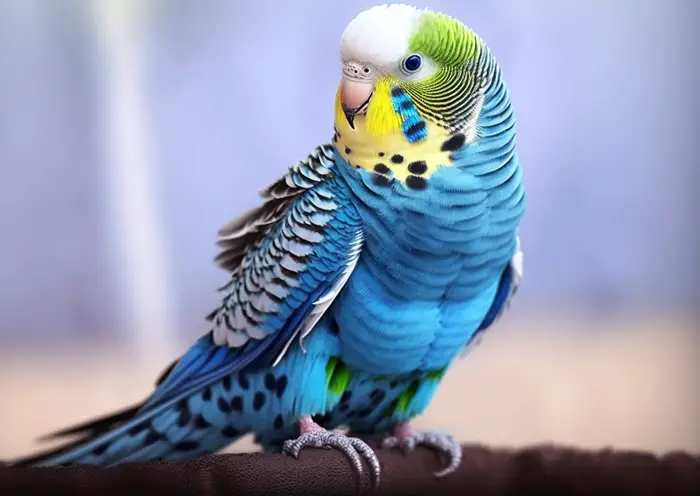
Here, this songbird used to slow down its metabolic rate while converting energy when it sensed a food shortage. However, there are more amazing facts. Let’s check them out.
Factors that affect how long a budgie can go without food
In general, there are four core factors that affect how long can a budgie survive without food. Below are the details.
- Age is the top factor determining how long the budgie can go without food. Younger budgies have a higher metabolic rate and may require more frequent feedings than adult birds. Following this, a young budgie cannot go for a longer period without eating compared to the older one.
- Health issues: Budgies with health issues cannot tolerate food deprivation. They may require more frequent feedings and specialized diets tailored to their specific health needs.
- Activity level: Not every budgie’s activity level is the same. Budgies that are more active, such as those with access to a larger cage or outdoor areas, require more food to support their high-activity attitude.
- Environmental factors: Extreme temperatures and humidity levels can increase a budgie’s metabolic rate and energy needs. Following this, the birds present in such an area cannot go without food as per the standard.
Potential Consequences of Starvation
By nature, during the starvation period of budgies, their body breaks down stored fat and muscle to meet their energy requirements. This can lead to weight loss, reduced blood pressure, and weakness, as well as increased chances of disease occurrence.
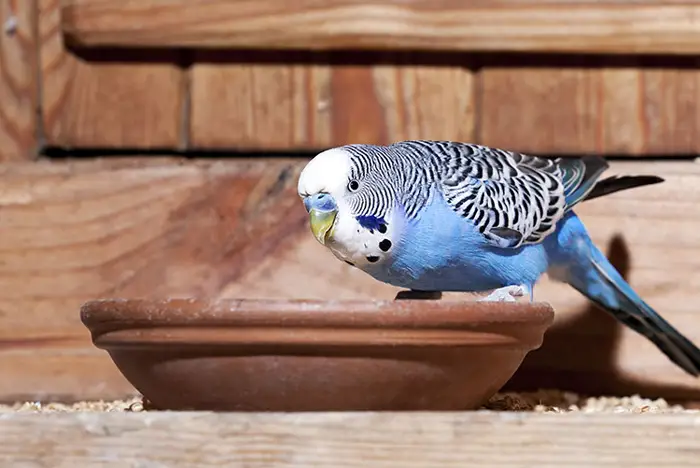
Again, food deprivation also has a psychological effect on budgies. A lack of food can lead to depression, anxiety, and other behavioral issues.
Signs of Malnutrition and Starvation in Budgies
Below are the signs of malnutrition and starvation in budgies.
- Its body looks thinner than normal due to weight loss
- It may spend more time sleeping or resting than usual due to a lack of energy. Here, slow movement can also be observed
- Decreased appetite or may refuse to finish the given food quantity at a time
- Budgie’s feathers may appear dull or lack their usual sheen
Veterinary Care for Malnourished Birds
If your budgie has not eaten for an alarming period, apply the approaches below.
- Provide fresh water
- Offer high-quality and desirable foods
- Import variety in foods
- Feeding syringes can be used
- Consult with the vet
Preventing Starvation in Budgies
Though budgies can go a significant amount of time without food, you should not allow this to restrict health issues in your beloved pet. So, what can you do to prevent your tiny creature’s starvation? Check below for details.
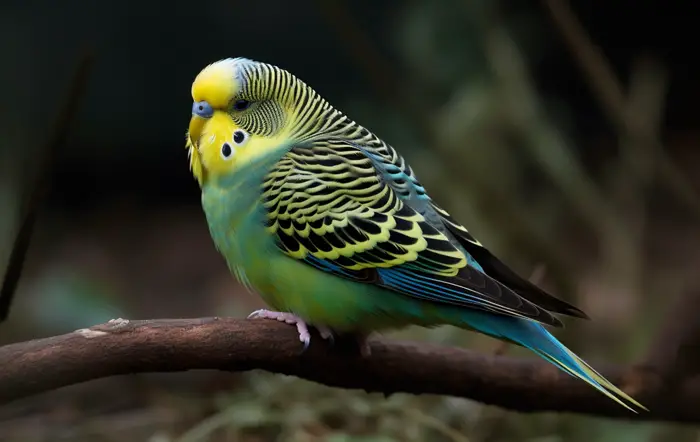
Tips related to Budgie Diet
To prevent starvation, apply the below-listed tips.
- For feeding a pet budgie, offer it a mix of seeds, pellets, fresh fruits, and vegetables to provide a range of vitamins, minerals, and antioxidants
- Provide high-quality bird foods like white proso millet, sunflower hearts, suet, nuts, and so on
- Do not keep uneaten vegetables, meats, and fruits in the bird feeders; always provide fresh foods
- Change the bird’s water at least once a day to ensure freshness
- Treats like millet or small pieces of fruit can be offered in moderation
Different Types of Bird Food and Feeding Options
After all, your budgie is a wild animal living inside the cage! It demands that you put some serious thought into the feed options. What can you do? You should apply strategies while offering food to the bird.
One of the best strategies includes placing the food in different ways, such as placing it in bowls, hanging it from the cage, or placing it in foraging toys.
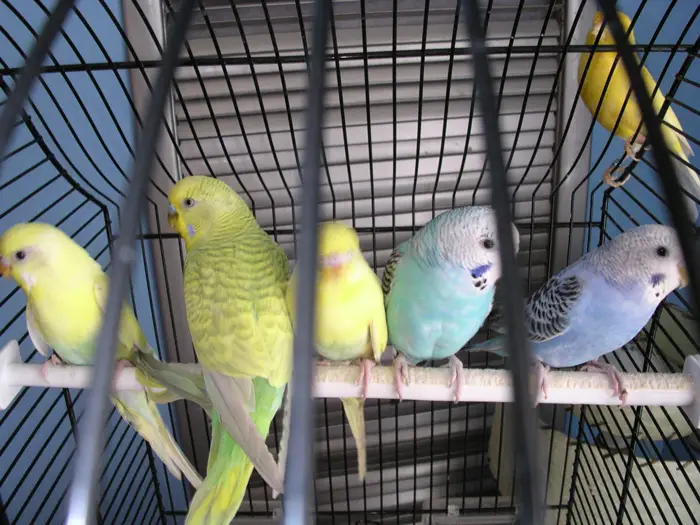
Also, you can build an extension of the cage, cover it with a net, make it like a tent, and put the food there. All these will support the budgie’s natural feeding behavior.
However, below are some types of bird foods you should consider.
| Bird Food Types | Name of the food |
|---|---|
| Seed mixes | Millet, canary seed, and oats |
| Pellets | High-quality and organic pellets from any GMO-brand |
| Fresh fruits and vegetables | Kale, spinach, carrots, apples, berries, etc. |
| Cooked grains | Brown rice, quinoa, and millet |
| Cooked legumes | Chickpeas, lentils, and beans |
| Occasional treats | Millet sprays, cuttlebone, and mineral blocks |
Importance of Fresh Water for Budgies and Ensuring Hydration
Budgies’ good health is vitally dependent on freshwater supply. First of all, it ensures adequate hydration in the bird, which is crucial to maintain its bodily functions like digestion, excretion, etc. Second, fresh water ensures the retention of the standard body temperature of this bird.
Third, pet birds need water to keep their feathers clean and healthy. Furthermore, fresh water ensures that its kidneys function properly.
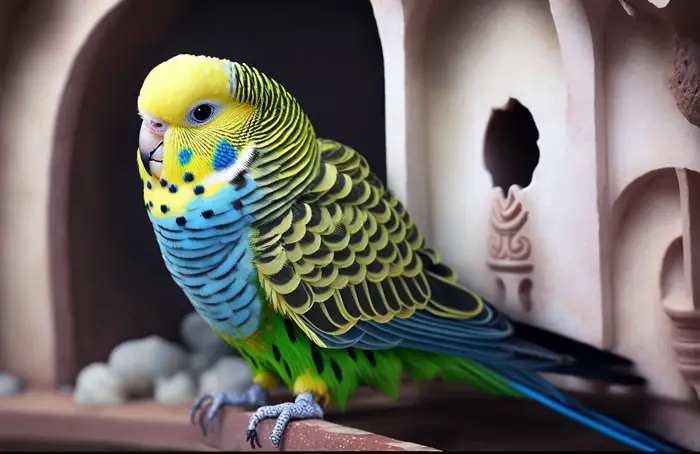
So, you see, ensuring adequate hydration in your pet bird(s) is more than essential. You can facilitate this by applying the methods below.
- Change the water daily, and wash the water dish before refilling it
- Water containers must prevent contamination and spillage
- Monitor the quantity of water consumption to restrict dehydration.
- Offer water-rich foods, such as fruits and vegetables
- Avoid the addition of supplements as much as possible
Recognizing and Addressing Feeding-Related Behavioral Problems
The most possible feeding-related bird behavior problems you can see:
- Overeating
- Picky eating
- Hoarding of food
- Becoming aggressive around food
So, to facilitate emergency feeding for budgies, check below.
- If your bird is overeating or hoarding food, you may need to adjust its diet or feeding habits
- Try to create a calm and quiet environment for mealtime
- Use foraging toys to support the bird’s foraging behavior
- Import variety into the diet to increase appetite
Check out this YouTube video to choose the pet bird’s foods:
Budgie Species and Breeds
This songbird’s species is known as Melopsittacus undulates. Here, the term “Melopsittacus” has been taken from Greek, and it means melodious parrot. Again, the term undulates,” which is a Latin word, indicates the parrot’s scalloped wing decoration.
However, there are several breeds that can be found, such as opaline, spangle, yellow face, lutino, gray wings, wild type, crested, pied, and many more.
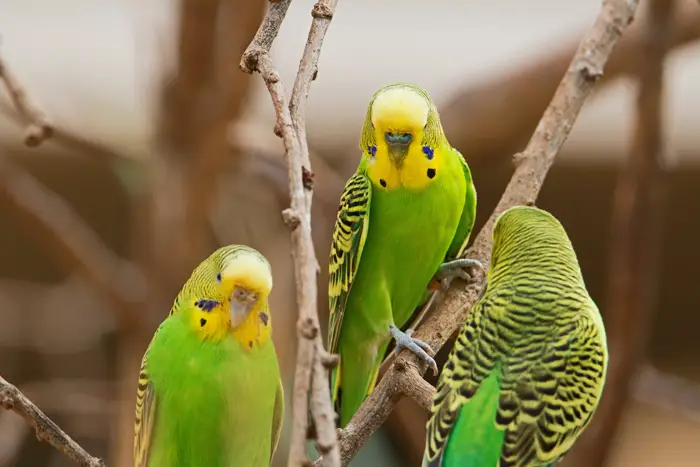
Budgie Behavioral Cues
Budgies are social birds; they use a variety of behaviors to communicate with each other and their surroundings. Below is the details.
Vocalizations: By chirping, singing, squawking, etc., this bird expresses feelings such as happiness, fear, or aggression.
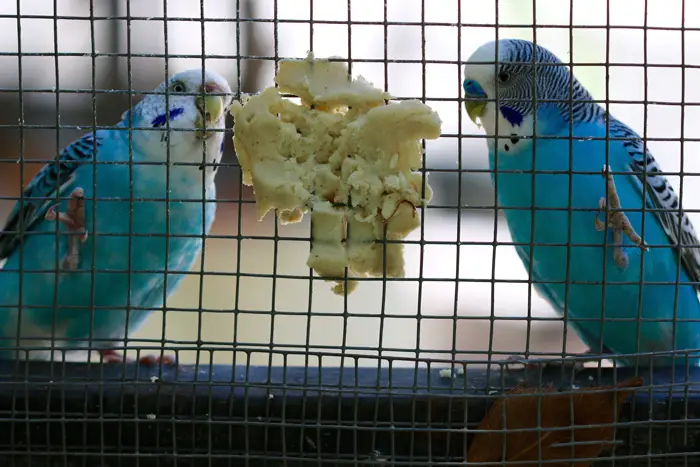
Body Language: When this tiny creature’s feathers are puffed out, it means the bird is feeling aggressive, and for flat features, the bird is scared.
Beak movement and wing flapping: These symbolize that the songbird is emotionally flourishing, either relaxed or playful. It is also a sign that the bird is excited.
Feeding behavior: When budgies feel hungry, they bob their heads or chirp.
FAQs
Below are the answers to some relevant questions.
Apart from their natural starvation criterion, your lack of understanding of a balanced diet for budgies can cause malnutrition. If you go for random food selection, your pet will face malnutrition.
Yes, they can overeat. It welcomes problems to the bird digestive system. However, the main cause of their obesity is excessive consumption of seed mixes.
They can survive solely on seeds. But the survival duration will be short, and its metabolism will start to suffer from a lack of vitamins, minerals, and protein.
You should provide them with fresh fruits and vegetables every day. And for eggs or meat, provide them every second day.
Last Words
Now, we know that budgies can go 24 to 48 hours without food, and some may survive 3 to 4 days, even. But it may drag them into some serious bird health issues. If you cannot ensure a balanced diet and adequate nutrition, the budgie will face some serious health issues and even it may die. And we suggest that, even though this habit is a part of their natural adaptability, you should not encourage it.
So, how long can a budgie go without food? Even though they can go for a couple of days, you must stick to providing food regularly to prevent their death from starvation. Likewise, you should go for a variety of food supplies and provide quality foods, treats, etc., to discourage starvation.
However, to know more about this bird’s nutrition and the pet care process, we suggest you visit the website “The Association of Avian Veterinarians” and consult a vet.
The enlisted vets are designated to support people who pet birds by providing needed information and guidelines concerning the bird nutrition and health. They will answer your general or even critical queries free of cost. In addition, they offer a membership program and have a rich resource base for bird care.
